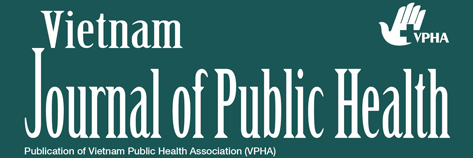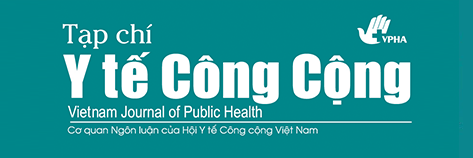Nhu cầu nghề nghiệp Y tế Công cộng (Social demand for public health professional training)
Tóm tắt
Đầu tiên nên bắt đầu từ chữ nhu cầu với lý do đơn giản là chỉ khi có nhu cầu thì một hoạt động phục vụ nhu cầu mới tồn tại. Câu hỏi nên đặt ra là có nhu cầu đào tạo nghề nghiệp Y tế công cộng (YTCC) không trong thực tế này?
Trả lời câu hỏi này không khó vì chỉ cần liệt kê các công việc mà bộ phận chịu trách nhiệm về sức khỏe (các chức danh cụ thể của nó) đang tiến hành và những phần còn đang thiếu hụt so với những yêu cầu của một định nghĩa rộng hơn về sức khỏe do tổ chức Y tế Thế giới (YTTG) vđề xuất và đã được tất cả acsc quốc gia thành viên đòng ý từ hang chục năm nay. Câu hỏi này nên được bắt đầu từ việc trả lời câu hỏi thực tế này là như thế nào? Lồng vào đó là nhấn mạnh lại quan niệm mới về sức khỏe cũng là cần thiết. Thật ra gọi là mới cũng không hoàn toàn đúng vì nó đa được tổ chức YTTG nêu lên và hầu như toàn bộ các quốc gia thành viên công nhận từ cuối năm 70 của thế kỷ trước, khi sức khỏe loài người đứng trước khẩu hiệu do chính mình đặt ra và chưa thực hiện được là: Sức khỏe cho mọt người vào năm 2000. Tuy nhiên, so với lịch sử phát triển của loài người- vì sức khỏe là mối quan tâm hàng đầu của loài người ngay từ khi loài người được hình thành cách đây hàng triệu năm thì vài chục năm lại là một quãng thời gian không đáng kể, và vì vậy quan điểm này rất mới. Trong một khoản thời gian ngắn như vậy, để hiểu và thực hành được một định nghĩa mới như vậy là điều không tưởng. Đây thực chất là một quá trình vừa học vừa làm vừa làm vừa rút kinh nghiệm. Chính vì thế, những ý kiến được trình bày trong bài này mang nhiều ý nghĩa vừa học, vừa làm.
English abtract
Let's start with the word "demand" by a simple reason - whenever there is a demand there is an activity to respond to that demand. One question, which should be raised, is whether the demand for training of public health profession exist in practice or not? It is not difficult to answer the above question since we can simply make a list of works that the health staff are carrying out and the "existing gap" compared with requirements included in WHO's broader definition of health which has been accepted by all state member for tens of years now. Therefore, the above question should be addressed by finding the answer in practice taking into consideration of the emphasis of new WHO's definition of health. Actually, this definition is not "new" because it has been worded by WHO and accepted by almost all state members since late 70's of the last century - when human's health confronted with the challenge stated in the slogan "Health For All by 2000". Health has been the human being's most important concern for millions of years, from the beginning of their existence. Compared to the human being history, the duration of several tens of years is so short to mention, then this definition has been accepted as up-to-date. In such a short time, it is impossible to comprehend and practice the up-to-date definition like this. In fact, this is a combining process of learning by doing. Therefore, ideas expressed in this paper are significant in terms of learning by doing.
Từ khóa
Toàn văn:
PDF (English)##submission.citations##
Backer EL, Melton RJ, Stange PV, et all, 1994: health reform and the health of the public, JAMA. pp 272; 1276- 1282.
Beaglehole R, Bonita R, Horton R, Adams O. 2004. Public health in the new area: Improving health through collective action. Lancet pp 363: 2084-86
BunkerJP, Frazier HS, Mosteller F, 1994: Improving health: Measuring effect of medical care. Milbank Q. pp 72
Devaney B, Bilheimer L, Schore J., 1991.The saving in medical cost for newborns, Princeton, NJ: Mathematical Policy Research Inc
Hellinger F. 1993. Lifetime cost of treating a person with HIV. JAMA, pp 270
Illinois Public Health Association, 1994. The role of public health and community prevention under health care reform. Springfield III: Illinois Public Health Association.
US public Health Services; 1994. For a healthy nation: Return on Investment In Public Health, Washington, DC: US public Health Services;
White CC, Kaplan JP, Orestein WA, 1985. Benefits, risks, and costs of immunization for measles, mumps, and rubella. Am J Public Health; pp 75
WHO; 2003. Essential Public Health Functions- A three country study in the Western Pacific Region.



